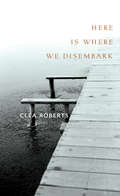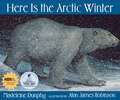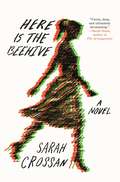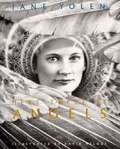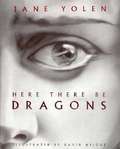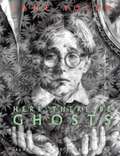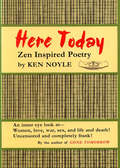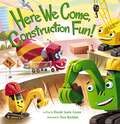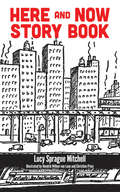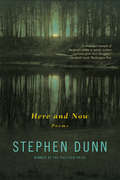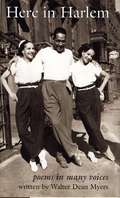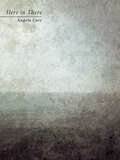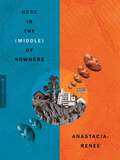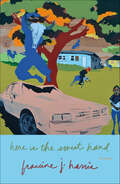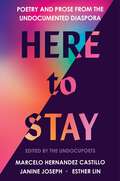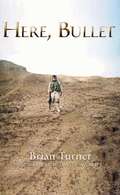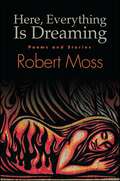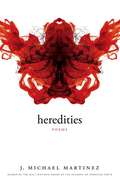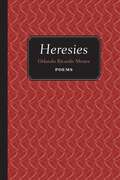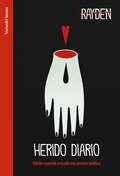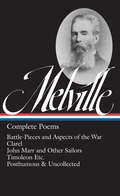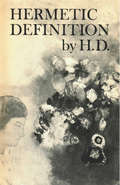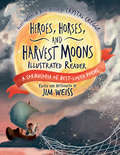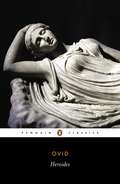- Table View
- List View
Here Is Where We Disembark
by Clea RobertsWith her remarkable debut collection, Yukon poet Clea Roberts proffers a perceptive & ecological reading of the Canadian North’s past & present. Roberts deftly draws out the moments that comprise a cycle of seasons, paying as much attention to the natural—the winter moon’s second-hand light that pools in the tracks of tree squirrels & loose threads of migrating birds—as she does to the manufactured—the peripheral percussion of J-brakes & half-melted ice lanterns. She also casts her gaze back to the Klondike Gold Rush of 1897-1898, raising the voices of those marked by a frenetic race for fortune: a seductive, edgy wolf, a disillusioned photographer, and a pragmatic prostitute, among others. Here Is Where We Disembark is a beautifully crafted book that ignites the senses, and its presence lingers, like woodsmoke, long after the final page has been turned.
Here Is the Arctic Winter
by Madeleine DunphyThe Arctic winter is cold, snowy, and dark. The barren landscape is covered by a layer of snow that stretches to the horizon, with nothing to disrupt it but jagged rocks. There are only a few plants and no sunlight. And yet, there are animals hardy enough to survive this bleak environment: the arctic wolf, hare, cod, and fox; the snowy owl, polar bear, ringed seal, and Peary caribou, all inextricably linked together in the chain of life. With lyrical text and glowing paintings that capture this mystically beautiful environment with stunning realism, this unusual book fascinates and inspires children of all ages.
Here Is the Beehive
by Sarah CrossanA brilliantly original debut about a love affair cut short, and how lonely it is to live inside a secret -- for fans of Sally Rooney, Sheila Heti, and Ottessa Moshfegh.Ana Kelly can deal with death. As an estate lawyer, an unfortunate part of her day-to-day is phone calls from the next of kin informing her that one of her clients has died. But nothing could have prepared Ana for the call from Rebecca Taylor, explaining in a strangely calm tone that her husband Connor was killed in an accident.Ana had been having an affair with Connor for three years, keeping their love secret in hotel rooms, weekends away, and swiftly deleted text messages. Though consuming, they hide their love well, and nobody knows of their relationship except Mark, Connor's best friend.Alone and undone, Ana seeks friendship with the person who she once thought of as her adversary and opposite, but who is now the only one who shares her pain -- Rebecca. As Ana becomes closer to her lover's widow, she is forced to reconcile painful truths about the affair, and the fickleness of love and desire. Funny, frank, and strange, Sarah Crossan's moving novel is wholly original and deeply resonant.
Here There Be Angels
by Jane YolenFrom the author's website: Short stories and poems all written by me, having to do with angels. A few--like "Angelica" had been published before. But a number are brand new to the book, like "Fallen Angel," a story about an angel whose wings have been burned up when he falls to the earth and how three children build him new ones. Each story and poem begins with a short introduction about how it came to be written. One of the stories from this, "The Word the Devil Made Up", won the 1997 Storytelling World Award. The book was on the 1997-98 Charlie May Simon Preliminary Reading List. inside the book jacket: The fourth in a series of beautiful gift books by acclaimed master storyteller Jane Yolen, Here There Be Angels is a heavenly collection of celestial musings, stories, and poems. Drawn from the author's uncommon imagination, as well as the legends of cultures around the world, these offerings reveal angels in many guises- from the everyday to the extraordinary, from the traditional to the avant-garde- performing simple miracles and transforming the lives of the people they touch, forever. Exquisitely illustrated by David Wilgus's duotone pencil drawings, each piece is also prefaced by an author's note, illuminating Jane Yolen's thoughts on writing, storytelling, and the angels in our midst. A grand companion to Here There Be Dragons, Here There Be Unicorns, and Here There Be Witches.
Here There Be Dragons
by Jane YolenIn Here There Be Dragons, dragons appear in every guise--ghastly, ghoulish, gentle, gargantuan--always endowed with the author’s ingenious touches. Each piece is introduced with the fascinating, and often revealing, story of its making and is illustrated with the intricate, moody pencil drawings of David Wilgus.
Here There be Ghosts
by Jane YolenAn illustrated collection of short stories and poems about ghosts.
Here Today, Zen Poetry
by Ken NoyleHere is poetry as mod as flower children and hippies; a Warhol happening or sitar music. Ken Noyle is a "personal" poet who immediately demands his reader to be with him or agin him as he ruminates on many things he thinks are important. Those things include sex and marriage and God and nature and war and the position of the individual in relation to each. Ponderous? No. Rather, outrageous, iconoclastic, irreverent in a "let's look- at-this-together-and-see-what-we make-of-it vein." Noyle's amazing range between delicate sensitivity and outright earthiness reflects his study of Zen from which he has carried off a disarming senseof reality. To read and enjoy Ken Noyle is to learn a little more about one's self. What more can a poet hope for?
Here We Come, Construction Fun!
by Rhonda Gowler GreeneHere We Come, Construction Fun, written by award-winning author Rhonda Gowler Greene, pairs rollicking rhymes with adorable illustrations to show a construction crew working together to build something special—a place for people to come together, sing, and praise … can you guess what it is?Engines rrrrumble—vrum vrum vroom. Crane Truck stretches out his boom.Mighty trucks rrrrrev out of bed. They&’ve got a busy day ahead!Little ones can&’t resist joining in the fun with playful cranes, backhoes, mixers, and dozers who are all working together to build something amazing! Kids will delight in discovering that the special project is a church—a place where everyone can gather.Celebrating cooperation and community, this rhyming read-aloud board book is sure to please parents and kids alike.
Here a Face, There a Face
by Arlene AldaAuthor/photographer Arlene Alda has produced yet another brilliantly simple rhyming safari -- this time in search of faces in unusual places. These faces are found on buildings, in trees, mailboxes, and fountains. Coy, funny, grumpy, comical, or sad, they are almost anywhere a child's imagination wants to go. Whimsical text heightens the search and helps us find the unusual characters who are quietly gathered all around us. Alda's unique through-the-lens perceptions will launch young children on a visual adventure that just might be hard to return from. The easy-to-read text and trampe d'oeil photos make Here a Face, There a Face perfect for the young or young at heart. Images removed. This is Arlene Alda's third, and perhaps her most clever photographic essay. Look for The Book of ZZZs and Did You Say Pears?
Here and Now Story Book
by Hendrik Van Loon Christine Price Lucy Sprague MitchellSmall children live in the moment, and the "here and now" nature of these stories encourages kids to learn from their own thoughts and observations. Written by a famous educator, the illustrated tales range from those suitable for reading aloud to 2- and 3-year-olds to those perfect for third graders to read for themselves.The founder of New York's Bank Street College of Education, Lucy Sprague Mitchell was a dedicated teacher and distinguished theorist on progressive schooling. Published in 1921, her Here and Now Story Book was among the first children's books to focus on the routines of everyday life rather than fairy tales. "One of my chief reasons for publishing this book," she noted, "was the hope of interesting teachers and parents in listening to the language of small children with ears that heard its freshness and beauty." Written to reinforce developing levels of cognition and socialization, these timeless tales are widely praised for their vibrant use of language.
Here and Now: Poems
by Stephen Dunn"A wonderful example of the poet's ability to satisfy readers and anticipate their thoughts."--Elizabeth Lund, Washington Post In his sixteenth collection, Stephen Dunn continues to bring his imagination and intelligence to what Wallace Stevens calls "the problems of the normal," which of course pervade most of our lives. The poem "Don't Do That" opens with the lines: "It was bring-your-own if you wanted anything / hard, so I brought Johnnie Walker Red / along with some resentment I'd held in / for a few weeks." In other poems, Dunn contemplates his own mortality, echoing Yeats--"That is no country for old men / cadenced everything I said"--only to discover he's joined their ranks. In "The Writer of Nudes" his speaker is in search of the body's "grammar" but tells his models, "Don't expect to see yourself as other / than I see you." Full of grace, wit, humor, and masterful precision, the poems in Here and Now attest to the contradictions we live with in the here and now. Political and metaphysical, these astonishing poems remind us of the essential human comedy of getting through each day. from "The House on the Hill" . . . from out of the fog, a large, welcoming house would emerge made out of invention and surprise. No things without ideas! you'd shout, and the doors would open, and the echoes would cascade down to the valleys and the faraway towns.
Here in Harlem: Poems in Many Voices
by Walter Dean MyersThese fifty-four poems, all in different voices but written by one hand, do sing. They make a joyful noise as the author honors the people--the nurses, students, soldiers, and ministers--of his beloved hometown, Harlem.
Here in There
by Angela CarrHere in There, Angela Carr’s third book of poetry, is a lyrical petition to the human faculty of attention. In constant motion, the poems locate unusual instances of connection. They ask, do we give or pay attention? And what do we attend to? How do we decide what merits our attention? In a world where stillness is elusive, can we give or pay attention to anything but that which outlives our own distraction? Turning our attention to the senses, in Here in There, touch informs inscription, credit becomes an audible vibration. Carr’s poems form traceable and untraceable patterns, disappearing economies of material.
Here in the (Middle) of Nowhere
by Anastacia-ReneeIn this bold hybrid collection of poetry, flash fiction, and Afrofuturism sci-fi, the award-winning interdisciplinary writer and author of Side Notes from the Archivist explores what happens when god is a Black woman in a town. What happens when there are multiple universes in the middle of nowhere?And what if in each universe there reigned other Black woman gods? One million versions of god, and one million saints to watch over us? And what if this Black woman god were placed here on earth?These are just a few of the questions Anastacia-Reneé asks in this daring and mind-bending hybrid collection. Hers is a universe of striking variety—monsters, nontraditional saints, witches, zombies, the couple in the apartment next door, the wise elders from down the block, and gods watching over us all—as well as community and connectedness.With a prose storyline and characters that connect through family, time, and place, Anastacia-Reneé paints world(s) rich with wonder and the paranormal as she peers into the lives of everyday people and spectacular creatures inhabiting not just our neighborhoods, but other dimensions. Here in the (Middle) of Nowhere is about interstellar ancestry, community and spirituality. It is about the things we invoke, conjure, and rely on to maintain joy as we keep it moving through difficult eras. Anastacia-Reneé’s power imbues her spellbinding storytelling with lovingly rendered characters brought to life in lyrical poetry. She builds worlds within worlds and dares us to fully see and love ourselves in all our complexity.
Here is the Sweet Hand: Poems
by francine j. harrisWINNER OF THE 2020 NATIONAL BOOK CRITICS CIRCLE AWARD IN POETRYThe poems in Here is the Sweet Hand explore solitude as a way of seeing. In particular, the speakers in francine j. harris’ third collection explore the mystique, and myth, of female loneliness as it relates to blackness, aging, landscape and artistic tradition.The speakers in these poems are often protagonists. Against the backdrop of numerous American cities and towns, and in a time of political uncertainty, they are heroines in their quest to find logic through their own sense of the world.The poems here are interested in the power of observation. But if there is authority in the individual versus the collective, Here is the Sweet Hand also poses questions about the source of that power, or where it may lead.As in her acclaimed previous collections, harris’ skillful use of imagery and experimentation with the boundaries of language set the stage for unorthodox election commemoration, subway panic, zoomorphism, and linguistic battlefields. From poems in dialogue with the artistry of Toni Morrison and Charles Burnett to poems that wrestle with the moods of Frank Stanford and Ty Dolla $ign, the speakers in this book signal a turn at once inward and opening.
Here to Stay: Poetry and Prose from the Undocumented Diaspora
by Janine Joseph Marcelo Hernandez Castillo Esther LinA lush tapestry of poetry and prose, Here to Stay is an invitation to engage with a new field of contemporary American poetry. “I cannot separate my work from my undocumented identity.” —Aline MelloFrom the indomitable writers and activists Janine Joseph, Esther Lin, and Marcelo Hernandez Castillo comes an anthology gathering some of the best work from currently and formerly undocumented poets, as well as poets from mixed status families from across the undocumented diaspora in America. Here to Stay is a collection of honest, searing, and evocative poems interspersed with short personal narratives. Deeply intimate, these works explore how to exist in the space between the familiar and the unknown, between the safety of silence and the desire to share. Highlighting the significant insights of undocumented poets, this brilliant compendium challenges misconceptions of what it means to live and write as an undocumented person in modern America.Beautiful, poignant, and timely, this must-read collection is a rich and essential new chapter in the ongoing story of the eclectic immigrant experience and the United States itself.
Here, Bullet
by Brian TurnerAdding his voice to the current debate about the US occupation of Iraq, in poems written in the tradition of such poets as Wilfred Owen, Yusef Komunyakaa (Dien Cai Dau), Bruce Weigl (Song of Napalm) and Alice James' own Doug Anderson (The Moon Reflected Fire), Iraqi war veteran Brian Turner writes power-fully affecting poetry of witness, exceptional for its beauty, honesty, and skill. Based on Turner's yearlong tour in Iraq as an infantry team leader, the poems offer gracefully rendered, unflinching description but, remarkably, leave the reader to draw conclusions or moral lessons. Here, Bullet is a must-read for anyone who cares about the war, regardless of political affiliation.
Here, Everything Is Dreaming: Poems and Stories (Excelsior Editions)
by Robert MossOur earliest poets were shamans. Today as in the earliest times, true shamans are poets of consciousness who know the power of song and story to teach and to heal. They understand that the right words open pathways between the worlds and draw closer the gods and goddesses who wish to live through us.Robert Moss brings this ancient bardic tradition to life in this collection of poems and stories that stream directly from dreams and shamanic adventures in the world-behind-the-world. You'll be carried into a reality where everything is alive and conscious, where tigers and bears can lend you their forms and raven and hawk can give you their sight, where the ancestors are talking, talking, and the gates to the Otherworld open from wherever you are.You'll awaken, through these pages, to how shamans use poetic speech to call the soul back home, into the bodies of those who have lost vital energy through pain or trauma or heartbreak. You'll travel to the Island of No Pain where lost boys and girls are kept safe. And you'll learn to make the return journey, and sing the lost soul back into the body where it belongs.
Heredities: Poems (Walt Whitman Award of the Academy of American Poets)
by J. Michael MartinezIn his award-winning first book, J. Michael Martinez reenvisions Latino poetics and its current conceptions of cultural identity. In Heredities, he opens a historically ravaged continental body through a metaphysical dissection into Being and silence. The hand manipulates a surgical etymology through the spine: the longitude where “history gathers in the name we never are.” The poems seek to speak beyond codified aesthetics and dictated identity politics in order to recognize a territory of “irreducible otherness” where the self’s sinew may be “reeved through revelation” and where, finally, one finds “obscurity bonded to light.” This stunning collection heralds the arrival of an important new voice in American poetry.
Heresies: Poems (Mary Burritt Christiansen Poetry Series)
by Orlando Ricardo MenesHeresies is an invocation of Latin American and Caribbean culture, history, and spirituality. Through free verse and poetic forms, the collection is visually charged and sonically rich. The poems incorporate history, legend, and magical realism to create a cross-cultural baroque feeling. Heresies is witty, probing, transgressive, and carnivalesque.
Herido diario
by RaydenDescubre esta preciosa edición revisada del poemario más exitoso y popular de Rayden, cuidadosamente editada y con nuevos textos inéditos. Un diario no se puede reescribir, porque hacerlo sería vestir lo que fue con recuerdos mentirosos. Lo que sí se puede es afilar las palabras con la herramienta de la experiencia y el aprendizaje del tiempo para ayudar a aquellos que fuimos a contar con certeza aquello que fue. Es lo que hace en esta revisión de su primer libro Rayden con las cuatro estaciones que lo componen: afinarlas como quien afina un piano y componer la última estrofa de una canción que empezó a sonar ocho años atrás. «Los libros lo saben todo de quien los escribe, leerlos es igual que leerle la mano a su autor. Este, sin ir más lejos, sabe que Rayden es tan hábil con las palabras como un lanzador de cuchillos y que en su opinión la poesía consiste en que por ella no pase de largo lo que pasa en la calle; también nos recuerda que la ironía es la aristocracia del humor y que no hay destino comparable al de encontrar quien nos diga: ¡Qué triste es ser feliz / si no es contigo! Sus versos buscan pelea y han elegido bando: el tuyo. Puedes fiarte de ellos». BENJAMÍN PRADO
Herman Melville: Battle-Pieces and Aspects of the War / Clarel / John Marr and Other Sailors / Timoleon / Posthumous & Uncollected (Library of America Herman Melville Edition #4)
by Herman MelvilleAn unprecedented single-volume edition of one of America's greatest poets, released to celebrate his bicentennialBest known today for his novels and stories, the author of Moby-Dick was a devoted and accomplished poet. Ranging from Civil War battlefields to the haunted byways of the Holy Land, from close observation of nature to deep philosophical mediation, Melville's poetry was central to his life and art and he justly ranks with Whitman and Dickinson as one of America's three greatest 19th-century poets. Complete here for the first time in the fourth and final installment in the Library of America's Herman Melville edition, are all four books of poetry he published in his lifetime plus uncollected poems and the poems from two projected volumes left unfinished at the time of his death, allowing readers to appreciate for themselves the extraordinary range of his poetic achievement. Melville's first book of poetry, Battle-Pieces (1866), remains one of the very few great American books to have emerged from the Civil War. Dedicated to the Union dead, it is both a deeply philosophical work of mourning and a fascinating record of events, tracking campaigns and battles and the war's immediate aftermath. With a cast of characters surpassing that of Moby-Dick, the epic poem Clarel (1876), about an American divinity student's pilgrimage to the Holy Land, has been likened to Paradise Lost and The Waste Land as a profound exploration of the problem of belief. Also included in Complete Poems are the two privately issued books John Marr (1888) and Timoleon (1891), which contain some of Melville's finest lyric verse. Rounding out the volume are the extraordinary poems from his two unfinished manuscripts, Weeds and Wildings and Parthenope, along with miscellaneous uncollected poems. All of the poems are presented in the authoritative Northwestern-Newberry texts.
Hermetic Definition: Poetry
by Hilda DoolittleThis late collection, written in the last years of H.D.'s life, is a testament to the fine ear and mythic sense of a poet who is now recognized as one of the greatest of her generation. H. D.'s (Hilda Doolittle, 1884-1961) late poems of search and longing represent the mature achievement of a poet who has come increasingly to be recognized as one of the most important of her generation. The title poem and other long pieces in this collection ("Sagesse" and "Winter Love") were written between 1957 and her death four years later, and are heretofore unpublished, except in fragments. We can see now in proper context her fine ear for the free line, and understand why other poets, such as Denise Levertov, Robert Creeley, and Robert Duncan, find so much to admire in H. D.'s work. As in her earlier books, one level of H.D.'s significant poetic statement derives from her intimate knowledge of and identification with classical Greek and arcane cultures; taken together, these elements make up the poet's own personal myth. Norman Holmes Pearson, H. D's friend and literary executor, has contributed an illuminating foreword to this impressive collection. H. D.'s (Hilda Doolittle, 1884-1961) late poems of search and longing represent the mature achievement of a poet who has come increasingly to be recognized as one of the most important of her generation. The title poem and other long pieces in this collection ("Sagesse" and "Winter Love") were written between 1957 and her death four years later, and are heretofore unpublished, except in fragments. We can see now in proper context her fine ear for the free line, and understand why other poets, such as Denise Levertov, Robert Creeley, and Robert Duncan, find so much to admire in H. D.'s work. As in her earlier books, one level of H.D.'s significant poetic statement derives from her intimate knowledge of and identification with classical Greek and arcane cultures; taken together, these elements make up the poet's own personal myth. Norman Holmes Pearson, H. D's friend and literary executor, has contributed an illuminating foreword to this impressive collection.
Heroes, Horses, and Harvest Moons Illustrated Reader: A Cornucopia Of Best-loved Poems (A Cornucopia of Best-Loved Poems #0)
by Jim Weiss Crystal CreggeClassic poems about nature, bravery, love, and the wild journeys of the imagination, beautifully illustrated by Crystal Cregge.
Heroides
by OvidIn the twenty-one poems of the Heroides, Ovid gave voice to the heroines and heroes of epic and myth. These deeply moving literary epistles reveal the happiness and torment of love, as the writers tell of their pain at separation, forgiveness of infidelity or anger at betrayal. The faithful Penelope wonders at the suspiciously long absence of Ulysses, while Dido bitterly reproaches Aeneas for too eagerly leaving her bed to follow his destiny, and Sappho - the only historical figure portrayed here - describes her passion for the cruelly rejecting Phaon. In the poetic letters between Paris and Helen the lovers seem oblivious to the tragedy prophesied for them, while in another exchange the youthful Leander asserts his foolhardy eagerness to risk his life to be with his beloved Hero.
